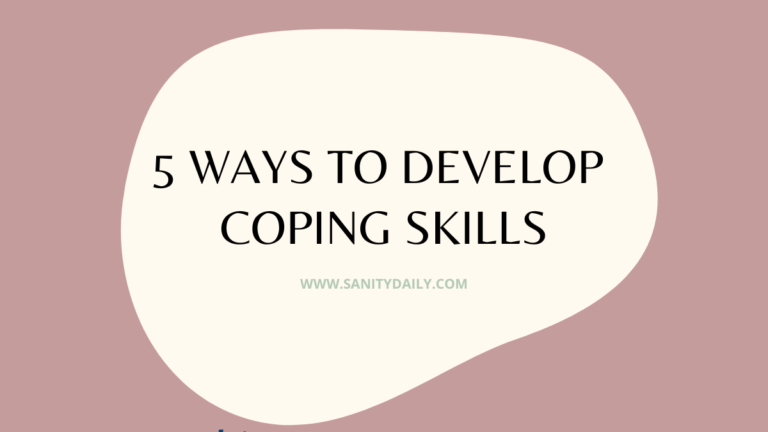How do we achieve strong mental health in old age? Our mental health shapes the way we feel, think and act on a daily basis. Once we reach a certain age, all of the different mental habits you have maintained throughout life will come to fruition and permanently shape your mental health.
Just like proper diet and exercise will optimize your body for old age, proper mental health exercises will optimize your mind and soul for old age.
This means that before we enter old age, it’s wise to pick up a few healthy habits to put a healthy, happy, and smart head on your shoulders so you can keep up with your family and help us prepare for strong mental health in old age.

8 simple ways to achieve strong mental health in old age
- Physical exercise
Let’s get the simplest thing out of the way first. The body is undoubtedly connected to the brain, so regular exercise that benefits the body will have a compound effect on your brain.
Multiple studies have found that regular physical exercise can reduce the risk of dementia by up to 30%. Physical exertion causes rushes of endorphins that activate the immune system with white blood cells. This also promotes feelings of comfort, confidence, and happiness.
These are biological components that get more and more precious as you progress through old age and nurturing them helps in forming strong mental health in old age.
- Maintain a good social circle
You don’t need to be a Hollywood socialite to have a good group of friends. Even if you’re more of a homebody, a small, tight-knit group of friends works wonders for the mind.
Studies have suggested that those who have a large social circle are 26% less likely to develop dementia than those with small or less significant ones. This is likely because social interactions are in fact great exercise for the brain.
Making conversation and connections with people require the mind to constantly decode, interpret, and react to other people’s words and body language. Having good friends also provides a sense of community and purpose – both great things for longevity.
- Learn an instrument
Don’t panic. Trying to become a professional pianist is not the point. The point is to throw your brain into new territory with frustrating, challenging tasks, while also enjoying it at the same time.
Playing the piano, for example, requires playing two melodies, one on each hand while maintaining a rhythm and staying within the correct keys. This is immensely challenging at first. Once you learn how to do this, you will form new neural-connections in once dormant parts of your brain.
Seeing yourself progress from being hopeless to actually finishing songs is an amazing feeling that builds confidence and stronger brains. Learning an instrument is another factor that has been found to significantly decrease the risk of dementia.
- Lower your stress levels
On top of other negative health effects, various studies have now found that chronic stress will eventually hinder your memory, thought processes, and emotional stability. Chronic stress may have some impact on the risk of Alzheimer’s.
For strong mental health in old age, at some point, you need to cut off the factors that are causing you stress in life, whether it’s work or other emotional baggage. Stress can also mess with your sleep schedule, which is also important for mental health.
- Taking supplements
Not all supplements are proven to be effective at what they’re purported to do, but many have at least some scientific clout. For example, extensive research on lion’s mane mushrooms suggests that it can reduce the risk of dementia and symptoms of anxiety and depression. Tests on animals suggest it reduces heart disease, diabetes, and ulcers. Most notably, lion’s mane is thought to help repair nerve damage and maintain a healthy nervous system.
Even more basic nutrients like vitamin D, C, and magnesium have been shown to lower the risk of mental health problems like insomnia, depression, and anxiety. Make sure you’re getting enough vitamins, especially during the dark winter months.
- Stay mentally active with mind-building games
There’s a reason older men love doing sudoku and crosswords. Mental games like this are easy, cheap ways to keep your mind on its toes when you’ve got nothing to do. This might seem ridiculous, but why not learn a video game in old age? Not only are they fun, but video games improve hand-eye coordination, reflexes, strategy, reaction time, spatial orientation, and competition.
You can play with your friends in person or online, and work as a team or compete against each other. Studies that track the benefits of video games suggest they can strengthen the brain and prolong mental health.
- Focus on trying new things
Rather than allowing your brain to get into dull monotonous patterns, always be open to trying new things. This doesn’t mean you can’t have a daily routine, it just means than in between your routine tasks, you should be shaking things up with new experiences.
Neurologists say that learning new things literally restructures the physical make-up of your brain. This also represents a perfect medium for building relationships, spending time with others, or just having fun. Travel somewhere new, watch a new type of film, try different foods, anything to awaken a new part of your brain and keep you mentally nimble.
- Always be conscious of what goes into your body
The food we eat, the drinks we drink, and the drugs we take will always have a firm influence on how the mind works. Focus on having a nutritious, simple diet that doesn’t neglect any crucial vitamins or minerals. Don’t abuse alcohol, and never take any medication that you don’t need.
Oftentimes you think you’re drinking or taking drugs to solve a problem, but you end up exacerbating depression, insomnia, or so many other mental health issues. Pay attention to how certain things affect your mood or mentality and build a diet around it that works for you and your mental health.
Conclusion
Though it’s true that genetics does play a role in determining our mental health, there are still many things we can do to make a genuine difference. When it comes to mental health, consider your brain as a muscle that needs proper exercise, proper rest, and proper nutrients. With the proper care, you can greatly increase your chances of being in tip-top mental condition well prepare for strong mental health in old age.

Elliot Figueira is an experienced analyst and journalist with over seven years of experience in digital content creation. Elliot has written for major tech blogs, news, and wound care sites. Elliot enjoys science-fiction literature and cultivating various types of cacti.




